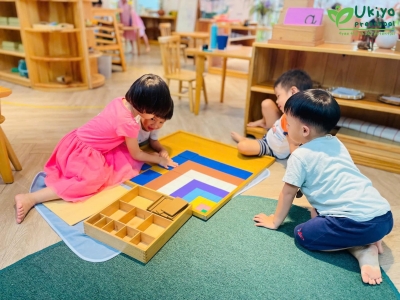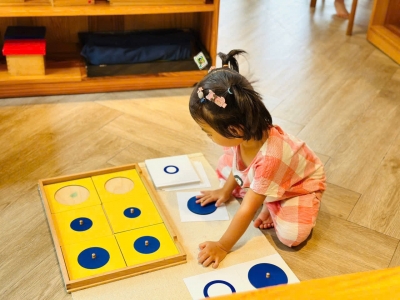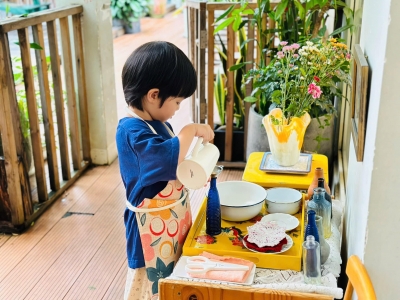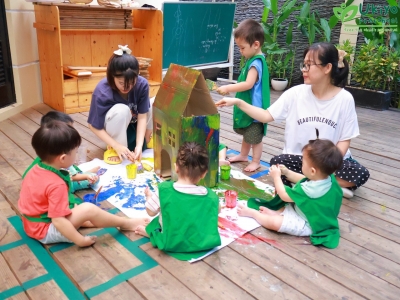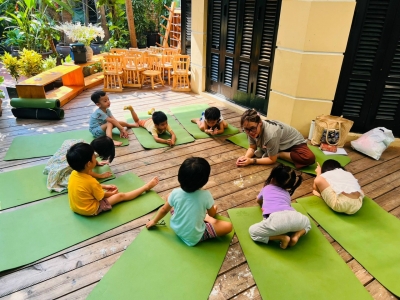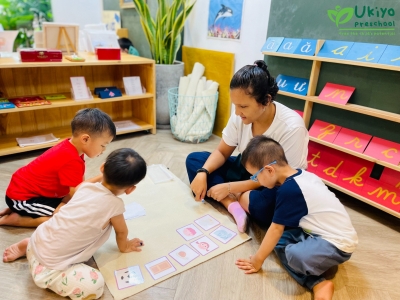THE GROWTH OF PERSONALITY IN CHILDREN
When the good fairies came to the christening of the little princess in the fairy tale, they wished for her beauty and riches, and her mother the Queen was delighted. But there is something they forgot which any wise mother today would wish for her child: the gift of personality.
On the whole we are inclined to regard it as a gift. A child either has or does not have personality, we think. It is something different from knowledge or character, both of which we are strongly convinced we can produce by suitable teaching and correction. And this is where we are completely wrong. Every normal child can develop mind and character as well as an individual personality if he is given a chance to do it for himself in his own way.
I am talking revolution! But then I have been working with children for many years and they have taught me to revolt against the misguided, obsolete ideas that many parents still sincerely believe in.
If a man or woman is charming, vivacious, reserved, or brisk in their manner, these are individual shades which the personality acquires but its foundations go deeper. The man who thinks for himself and has the will power to carry out his intentions is a man who would stand out anywhere. And these are the qualities your children may develop. It will perhaps be easiest to understand how we can bring this about if I tell you how we train the children in our schools. Suppose your child of two or two and a half comes to spend his mornings with us, he will begin his lessons straight away by teaching himself. Our idea is simply to provide him with interesting objects which will nourish and exercise his mind. We have no need to force him to learn, to make him work, he does that of his own accord because it is his nature to grow in mind as well as body.
In this school everything has its place and is kept there, because I have observed over and over again that children have a feeling for orderliness. Your child will learn to know where he may find things and he will put them back of his own accord when he has finished with them. Even so simple a thing as this has an important effect on the character he is forming. Without any correction or force, he becomes neat in his habits and orderly in his mind, and because he has mastered the details of his own little world he has attained independence in it. This principle can easily be carried out in his room at home.
Then there is the educational material he uses to teach himself with. It is scientific of course, but it is also interesting. From it he learns to classify the properties of objects which he meets in everyday life: size, shape, color, sound, things fit into each other, colors match each other. In connection with all the material there is some movement to be correctly performed, because this is the only way a child can gain sure knowledge for himself.
He can find interesting things at home too – the lid of a box that opens and shuts, a cork to fit and pull out of a bottle, a key that turns in a lock, this is the way he teaches himself. In school the teacher stands by, she does not correct or interfere with his work. When something goes wrong she waits to be asked for help, but most often a child persists until he himself does it right.
This is perseverance, the beginning of will power which is so important a part of personality. In the school all the children are happy and therefore sweet-tempered. And because the teacher respects each child and refrains from interference, the children treat one another with the same respect and kindness. These are social qualities which give charm to personality.
Children are so responsive that if you treat your child with kindness and consideration he too will be kind. If you let him pursue his own little affairs and interests undisturbed, you will find that he will be less inclined to disturb yours. Try to interfere with him as little as possible, there is no need to worry about him growing up ignorant or ill-mannered. Instead he will be observant and intelligent, independent and persevering, and these qualities lie at the root of personality. And when your child adds his own particular gifts of temperament and ability to these, you may be sure that his personality will command attention wherever he may go.
Chapter 9, Maria Montessori Speaks to Parents Book
Others



